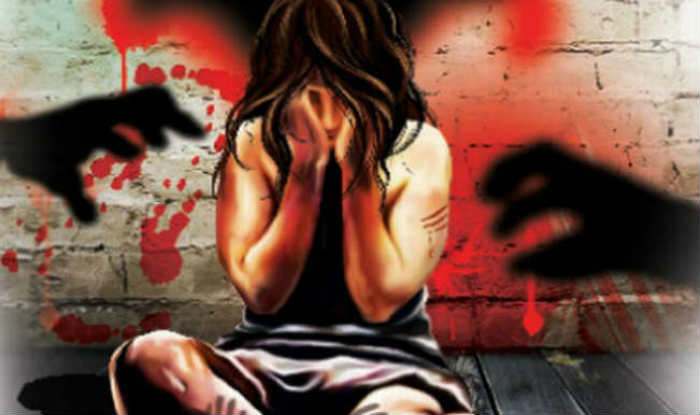Agencies
New Delhi, December 6:
The Friday morning encounter of all the four accused in the brutal rape-and-murder case of a 25-year-old woman veterinarian last month in Hyderabad triggered a nationwide debate on justice delivery, with one side supporting it as speedy justice and the other raising concerns over ‘extra-judicial’ measures.
Here is a look at the legal status of some rape cases which shook the country.
Unnao rape case
The 2017 case of alleged kidnapping and rape of the then minor girl by ex-BJP legislator Kuldeep Singh Sengar in Unnao was transferred by the Supreme Court to a trial court in Delhi with a direction to CBI to complete the investigation within seven days.
On August 2 it directed that CBI could avail additional seven days in exceptional circumstances.
The court initiated ‘in-camera’ proceedings from September 11 at AIIMS, where she was admitted after an accident on July 28, for recording her statement. The victim and her lawyer were critically injured and two of her aunts were killed in the accident.
Besides the main rape case and the accident case, three other matters transferred to Delhi are — the FIR against victim’s father under Arms Act; his custodial death and a separate gang rape of the victim.
The three accused in the gang rape case — Naresh Tiwari, Brijesh Yadav Singh and Shubham Singh — are all out on bail.
The final arguments in the case are on under District Judge Dharmesh Sharma, who recently concluded recording statements of defence witnesses and started hearing the CBI’s arguments.
Muzaffarpur Shelter Home case
Several minor girls were sexually and physically assaulted in a shelter home in Bihar’s Muzaffarpur, which came to light after a TISS report was given to the Bihar government on May 26, 2018, in which former Bihar People’s Party MLA Brajesh Thakur is the prime accused.
The verdict in the case is likely on December 12, a month after its earlier decided date.
The CBI told the special court that there was enough evidence against all the 20 accused in the case.
On May 29 last year the state government shifted the girls from the shelter home to other protection homes and on May 31 the FIR was lodged against the 11 accused in the case.
The Supreme Court on August 2 took cognisance of the case and transferred the probe to CBI on November 28. On February 7 this year, the cases were transferred from a local court in Muzaffarpur to a POCSO court at Saket district court in Delhi.
The court reserved order on September 30 after final arguments by the CBI counsel and 11 accused in the case, also including ex-Bihar Social Welfare Minister and the then JD(U) leader Manju Verma, who faced flak as allegations surfaced that Thakur had links with her husband.
Nirbhaya rape case
In the December 2012 Nirbhaya gang rape and murder case of a 23-year old paramedic student in Delhi, the Supreme Court in July last year dismissed review pleas of three of the four convicts, upholding their death penalty.
It rejected the review pleas filed by Mukesh (30), Gupta (23) and Sharma (23), saying no grounds were made out by them for a review of the verdict.
The fourth death row convict, Singh (32), did not file a review petition against the apex court’s May 5, 2017 judgment.
Recently three convicts, facing gallows in the gang rape and murder case, wrote to the jail authorities, seeking withdrawal of an October 29 notification granting them seven days’ time to file mercy pleas with the president against their execution.
The jail authorities had informed the Nirbhaya gang rape case convicts that they had exhausted all legal remedies and were only left with the provision of filing a mercy petition against the death sentence before the president.
The top court, in its 2017 verdict, upheld the capital punishment awarded to them by Delhi High Court and trial court.
One of the accused in the case, Ram Singh, allegedly committed suicide in Tihar Jail here.
A juvenile, who was among the accused, was convicted by a juvenile justice board. He was released from a reformation home after serving a three-year term.
Kathua rape case
The 2018 rape and murder of an 8-year-old nomadic girl in a Kathua village had seen conviction of six people. Four months later, in October, a court in Jammu however directed the police to register an FIR against six members of the Special Investigation Team (SIT), which probed the case, for allegedly torturing and coercing witnesses to give false statements.
Judicial Magistrate Prem Sagar gave the direction to senior superintendent of police (SSP) of Jammu on an application by Sachin Sharma, Neeraj Sharma and Sahil Sharma, who were witnesses in the case, saying cognizable offences are made out against the six.
In June this year, District and Sessions Judge Tejwinder Singh sentenced to life imprisonment the three main accused, while awarding five years in jail to three others for destruction of evidence in the case that shook the nation.
The trial was shifted to Pathankot in Punjab on the order of the Supreme Court after lawyers in Kathua attempted to prevent submission of the charge sheet in court.
Day-to-day in-camera trial was held for a year.
According to the charge sheet, the girl who was kidnapped on January 10 last year, was allegedly raped in captivity in a small village temple in the district after being kept sedated for four days before she was bludgeoned to death.
The abduction, rape and killing of the child was part of a carefully planned strategy to remove the minority nomadic community from the area, it said.




